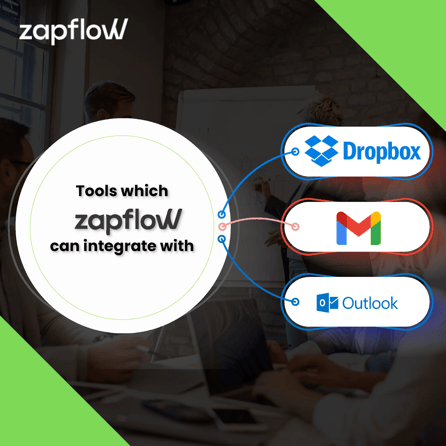A well-chosen CRM is the backbone of efficient VC fund operations, impacting investment tracking, deal flow, and overall efficacy.
Today’s market offers an array of venture capital CRMs, each with unique features and capabilities. They offer unparalleled customization, integration, and data analysis, specially designed to meet the nuanced requirements of asset management funds.
The critical role of CRM in enhancing VC fund operations
VC CRMs are critical tools that drive several core functions of VC funds. By centralizing stakeholder information, these systems enable funds to maintain robust relationships with investors, entrepreneurs, and other key players in the investment community. Along with storing contacts, VC CRMs help nurture these relationships through efficient communication and engagement strategies.
CRMs also play a pivotal role in refining the investment tracking process. They provide a streamlined, organised method for monitoring various stages of deals, from initial contact to final closure. This comprehensive oversight assists in recognizing potential opportunities and risks to ensure that fund managers make informed and timely decisions.
The efficiency gains from using a CRM system in managing deal flow cannot be overstated. The ability to track interactions, manage documents, and analyze data within a single platform significantly enhances operational efficiency.
Crucial factors in selecting right CRM for VENTURE CAPITAL
Choosing the right CRM for a private equity fund involves carefully considering several key factors. These considerations ensure that the CRM meets the fund's current needs and is well-positioned for future growth and challenges.
Customization and flexibility

A CRM's ability to adapt and evolve alongside the fund it supports is essential. The optimal CRM solution should provide the flexibility for customization, seamlessly aligning with the unique workflows and processes of each fund.
- Importance of customizable workflows: Every VC fund operates uniquely, and a CRM must adapt to diverse workflows. Customizable features allow the CRM to be tailored to match the fund's specific processes, from deal sourcing to exit strategies. Alternatively, it should allow native integrations with tools like Zapier.
- Scalability: As a fund grows, it needs to evolve. Your chosen CRM must be scalable and capable of handling an increasing number of deals, contacts, and data without compromising performance or efficiency.
Integration capabilities
The ability of a venture capital CRM to integrate with existing systems is paramount for streamlined operations.
- Integrating with existing tools: In today's tech-driven world, VC funds use various tools for different operations. The ideal CRM should integrate seamlessly with existing systems, whether financial software, communication tools, or data analysis programs.
- Streamlining data consolidation: A CRM should be a central repository for all data, making it easily accessible across an organization. This is key to streamlining operations and improving decision-making processes.
User experience and accessibility
The usability and accessibility of a CRM are essential for ensuring the entire team can leverage its full potential.
- Intuitive interface: An effective CRM should have an intuitive, user-friendly interface. This ensures all team members can use it efficiently, minimizing the learning curve and enhancing productivity.
- Mobile accessibility: With remote work and on-the-go meetings being commonplace, mobile accessibility is crucial. A CRM with robust mobile features enables team members to access critical information anytime and anywhere.
Data security and compliance
Ensuring the security of sensitive data and compliance with regulatory standards is a non-negotiable aspect of any CRM system.
- Data protection and regulatory standards: Protecting sensitive data is paramount in a VC fund. The right CRM must have robust security features and comply with advanced data protection regulations.
- GDPR compliance: For funds dealing with European entities, GDPR compliance is imperative. The CRM should adhere to these regulations, meeting data privacy and protection standards.
Among the diverse options in VC and PE CRM solutions, Zapflow stands out itself with a customized approach and a robust set of features. It offers a seamless blend of functionality and user-centric interface, carefully designed to meet the distinctive requirements of private equity operations.
Zapflow boasts key features osuch as advanced deal flow management and tracking, ensuring meticulous monitoring of every stage in the investment process. The platform excels in customization, allowing VC funds to tailor the system according to their specific workflows and preferences. Furthermore, Zapflow's strong suit lies in its integration capabilities, facilitating seamless synchronization with existing tools and systems.
Zapflow also emphasizes data security by incorporating stringent measures to ensure compliance with regulations like GDPR and protecting sensitive information. This combination of features makes Zapflow a comprehensive tool for VC funds aiming to optimize their operations efficiently and precisely.
A strategic framework for VC funds
When choosing the right CRM for your private equity fund, the decision extends beyond feature comparison. It's about finding a solution that resonates with your fund’s ethos and future vision. Here's a concise framework to guide this crucial decision:
- Identify your unique requirements: Begin by assessing the specific needs of your fund. What are the unique challenges and processes that your CRM needs to address? Understanding these requirements will serve as a compass in navigating the diverse CRM landscape.
- Focus on long-term value: Consider the immediate benefits and long-term value a CRM can bring. How will it grow with your fund? Will it adapt to future market shifts and technological advancements?
- Evaluate ecosystem compatibility: Assess how well each CRM integrates into your existing ecosystem of tools and workflows. The ideal CRM should enhance, not disrupt, your current operations.
- Prioritize data security and compliance: With increasing data privacy concerns, ensure that your chosen CRM adheres to stringent security protocols and regulatory compliance, particularly if your operations span multiple geographies.
- Consider the total cost of ownership: Look beyond the sticker price. Consider implementation costs, training, and potential scalability expenses to understand the total cost of ownership.
- Seek feedback and demos: Leverage user reviews and
- Request demos Observing the CRM in action and hearing current user experiences can provide invaluable insights.
- Trust your judgment: Finally, trust your judgment. You know your fund best. Choose a CRM that feels like the right fit for your team’s style and your fund’s aspirations.
Charting the path to success with the ideal CRM choice
The right CRM can transform how funds manage relationships, track investments, and make strategic decisions. It’s about finding a system that offers advanced features while aligning with your fund's unique challenges and needs. .
Zapflow offers a platform designed explicitly for the VC environment. It enhances operational efficiency and effectiveness, addressing the unique demands of venture capital management. Zapflow stands out for its ability to streamline processes, ensure data security, and offer deep insights - making it a valuable partner for any VC fund's journey toward success.
Explore the possibilities, weigh your options, and choose a CRM that will be the cornerstone of your fund's future achievements!
Get in touch today!



